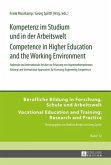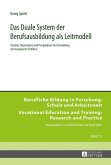How can it be ensured that vocational education matches the requirements of the increasingly complex world of work? In search of a suitable approach, it has become evident that Competence-Based Training cannot provide this service since it focuses on static "work" instead of encompassing dynamic "work-processes." Consequently it is necessary to rely on the analysis of work-processes when designing a detailed curriculum for a digitalized environment and Industry 4.0. The results of the work-process analyses reflect the spectrum of requirements and are applied as the core elements for the shaping of detailed curricula. This ensures a state of the art of curricula and facilitates their swift development in matching changes in the world of work.








